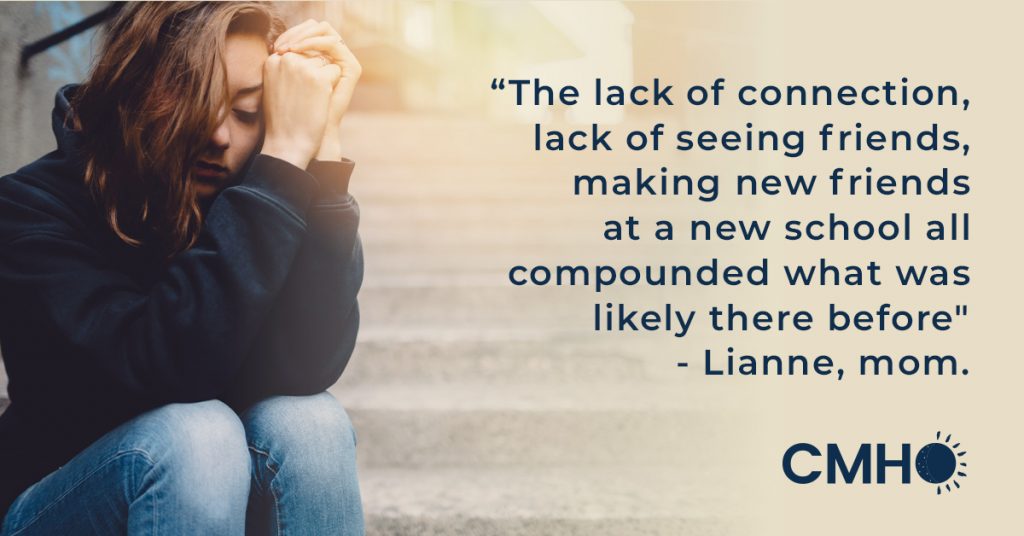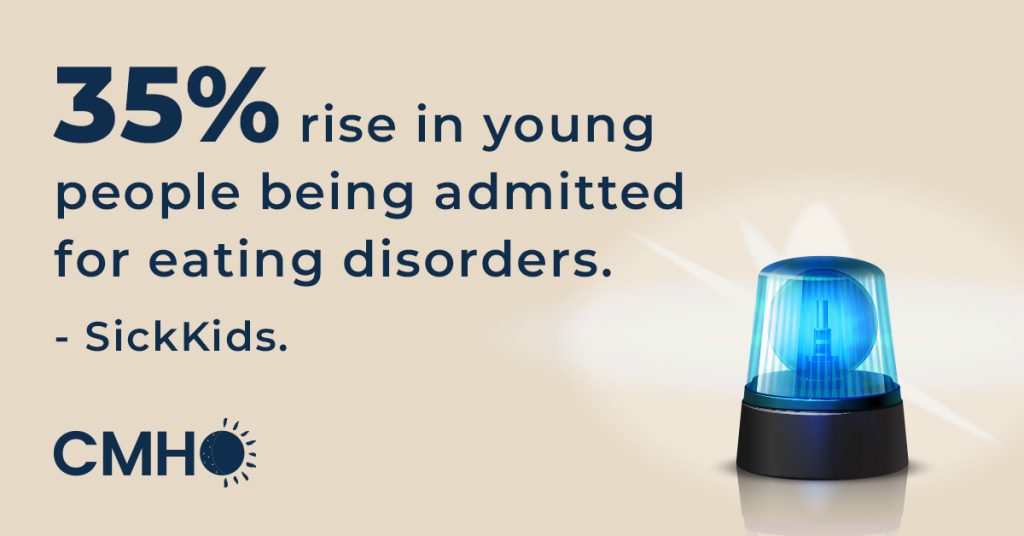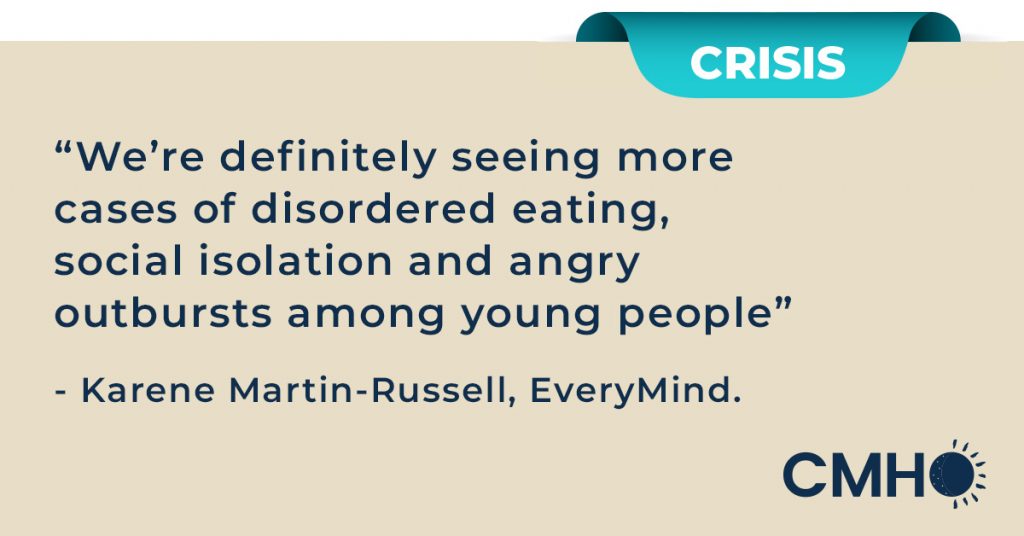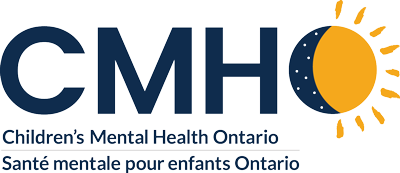Last year, Toronto mother, Lianne, noticed her 15-year-old daughter, Hadley, was hardly eating. Ever since the pandemic had cut her off from friends at school and karate class, the teen had become increasingly focused inward on her appearance.
Lianne took Hadley for a medical examination. Her doctor discovered Hadley’s heart rate was so low that she was rushed to Toronto’s Hospital for Sick Children, where she was admitted and treated for an eating disorder.

“The lack of connection, lack of seeing friends, making new friends at a new school all compounded what was likely there before,” Lianne says.
“Restrictions, time away from family, the constant fear and not being able to even go to karate class, or work at the dojo, absolutely impacted her negatively,” Lianne says.
“Exercise was a huge focus for her and stress outlet. Joining a class online in the living room soon lost its appeal, so she then started to gain weight and that’s when her eating disorder surfaced.”
Vicki, London, Ontario mom
Another parent, Vicki, said that her 16-year-old son has gone into crisis more so during the COVID-19 pandemic than in any other year prior.
The London, Ontario, mother said her son, who fares better in face-to-face environments, has been going back and forth between virtual and in-person mental health treatments, and virtual and in-person school, where he receives instruction in an unfamiliar way.
“His suicidal ideation increased and his sense of loneliness and isolation has increased,” she said.

Vicki is the mom of a child with mental illness
Too many kids and their families across Ontario have been facing severe mental health challenges through the pandemic.
Child and youth mental health experts across Ontario say they have seen a disturbing increase in mental health disorders among youth through the pandemic. Many are dealing with complex mental health issues beyond anxiety and depression.

Toronto’s Hospital for Sick Children reports a 35% rise in young people being admitted to its program for eating disorders.
Hospitals have seen a dramatic rise in the number of youth showing up in emergency rooms because of eating disorders, substance abuse problems, self-harm and suicide attempts.
“We’re definitely seeing more cases of disordered eating, social isolation, and angry outbursts among young people,” says Karene Martin-Russell, Child and Family Clinician at EveryMind in Mississauga.

We’re definitely seeing more cases of disordered eating, social isolation and angry outbursts among young people”
This rise in severe mental health issues in recent years comes at a time when the child and youth mental health system was already under strain.
There were already nearly 28,000 children waiting as long as 2.5 years to access mental health services in early 2020.
The extraordinary instability and losses children have faced since the start of the pandemic have exacerbated mental health problems among children and youth.
Trish Benoit, director of children and youth mental health at HANDS The Family Help Network, says health care workers have seen a sharp rise in the number of young people dealing with suicidal thoughts or attempts.
“When lockdown occurred in 2020 we saw a decrease in numbers. Then all of a sudden – two or three months – numbers started to climb and those numbers haven’t stopped climbing,” she says. Trish shared this information with the North Bay Nugget.
Kids were also more likely than any other age group to report mental health issues during the pandemic, with young people reporting anxiety, depression and post-traumatic stress disorder at three times the rate of adults 65 and older, according to Statistics Canada.
“Some of the clients I am seeing had pre-existing anxiety concerns that have been intensified by the pandemic. For many kids who suffered from depression, the pandemic reduced their opportunities for getting out of the house and disconnected them from friends and school,” says Karene.
Read more: Skyrocketing demands for kids mental health services.
Find Help
If you or your child are in need of mental health supports, reach out to a child and youth mental health centre in your community. Find help. Also, read more about how to recognize that your child needs help.
Take the Pledge
Ontario is facing a kids’ mental health crisis. To raise awareness, we are sharing stories from families who are a part of our Parents for Children’s Mental Health peer support chapters. These are real parents, real children – and real issues. Our kids can’t wait anymore for mental health care. Families should be able to access kids’ mental health treatments wherever they are, when they need it.
We are calling on Ontario’s political parties to Take the Pledge for kids’ mental health. You can help. Ask your MPP candidates to Take the Pledge.


0 Comments